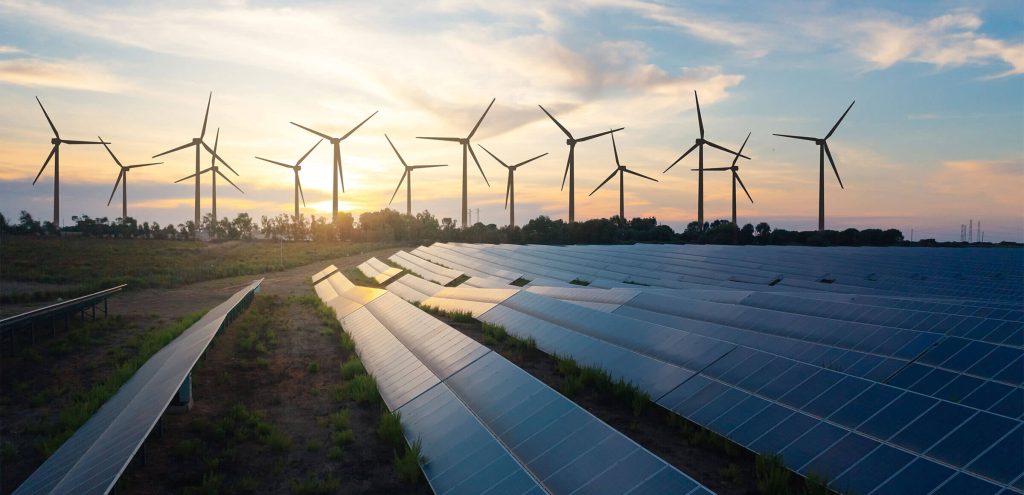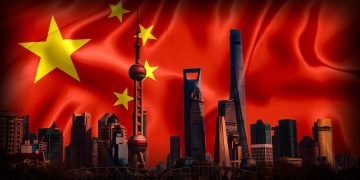The world is on the brink of a significant transformation in how it produces and consumes energy. The shift toward renewable energy sources, such as wind, solar, hydropower, and geothermal, is seen as a critical step in reducing carbon emissions, combating climate change, and ensuring a sustainable future. However, this transition is not without its economic challenges. While renewable energy has the potential to create new industries and jobs, the economic ramifications are complex and multifaceted. In this article, we will explore how the shift to renewable energy might overcome these economic challenges, focusing on its impact on global trade and its potential to boost long-term economic sustainability.
Impact on Global Trade: How Renewable Energy Impacts International Trade Agreements
The adoption of renewable energy technologies has the potential to disrupt the global trade landscape. Fossil fuel-rich nations have traditionally dominated global trade, particularly in oil, gas, and coal, but as the world turns toward cleaner energy sources, new trade patterns are likely to emerge. The increasing demand for renewable energy technologies and raw materials, such as lithium for batteries or rare earth elements for wind turbines, will reshape supply chains and global trade flows.
First and foremost, the shift to renewable energy will create new trade dependencies. Countries that are rich in resources critical for renewable energy production, such as solar panels, wind turbines, and battery materials, will gain economic leverage. For example, China is already a dominant player in the production of solar panels and wind turbines, and its influence is expected to grow as demand for these technologies increases. Other countries with access to essential raw materials, such as Chile and the Democratic Republic of the Congo (for lithium and cobalt, respectively), will see their positions in global trade become more crucial.
However, renewable energy trade also has its complications. The extraction of rare minerals needed for renewable technologies can lead to geopolitical tensions and supply chain disruptions. Additionally, countries with less access to these materials may face challenges in developing their renewable energy sectors. For instance, while a nation like the United States may have the technological capabilities to produce renewable energy systems, it may rely heavily on imports of raw materials from other countries, which could expose it to vulnerabilities in global trade agreements.
Furthermore, trade agreements will need to adapt to the growing importance of renewable energy. Traditionally, trade deals have focused on energy exports, such as oil and gas, but in the future, agreements may center on technology sharing, innovation partnerships, and the trade of raw materials essential for renewable energy production. The World Trade Organization (WTO) and other international bodies will need to evolve to accommodate these new realities, potentially fostering collaboration among nations to ensure that renewable energy technologies are accessible and affordable across borders.
International cooperation will also play a crucial role in overcoming economic challenges associated with the renewable energy transition. While trade agreements may promote the sharing of technology and resources, governments will need to ensure that the benefits of renewable energy are distributed equitably. Developing countries, in particular, may face significant challenges in adopting renewable energy due to financial constraints and limited access to technology. Therefore, international aid, investment, and knowledge sharing will be essential to ensuring that the global transition to renewable energy is inclusive and equitable.

Economic Sustainability: Can Renewable Energy Boost Long-Term Economic Stability?
One of the most compelling arguments for renewable energy is its potential to contribute to long-term economic sustainability. As the global economy grapples with the effects of climate change, including extreme weather events, rising sea levels, and resource scarcity, transitioning to renewable energy offers a path toward economic stability. Renewable energy can help reduce dependency on fossil fuels, stabilize energy prices, and create new industries that contribute to a more diversified economy.
The economic sustainability of renewable energy is evident in its ability to reduce the volatility associated with fossil fuel markets. Fossil fuel prices have long been subject to fluctuations driven by geopolitical tensions, supply chain disruptions, and other market dynamics. In contrast, renewable energy sources are largely immune to these factors, as they rely on natural resources like sunlight, wind, and water. Once renewable energy infrastructure is in place, the cost of production is relatively low, and the price of energy becomes more predictable.
Moreover, the renewable energy sector has the potential to create millions of jobs worldwide. The installation, maintenance, and innovation of renewable energy systems require a highly skilled workforce, offering employment opportunities in a variety of industries. From engineering and manufacturing to research and development, the renewable energy sector has the potential to provide stable, well-paying jobs across different skill levels. This job creation can boost local economies, stimulate innovation, and support a transition to a more sustainable and resilient workforce.
Beyond job creation, renewable energy can also drive economic growth by reducing energy costs in the long term. For businesses and households, renewable energy can lower the cost of electricity, reducing operational expenses and improving the overall economic climate. In regions where energy costs are high, renewable energy can provide a more affordable alternative, fostering economic growth by enabling businesses to allocate resources to other areas of development.
Furthermore, renewable energy can contribute to economic sustainability by promoting energy independence. Many countries currently rely on imports of fossil fuels to meet their energy needs, which can create economic vulnerabilities and geopolitical risks. By investing in renewable energy infrastructure, nations can reduce their dependence on foreign energy sources, thereby enhancing their energy security and stabilizing their economies. This shift toward energy independence can also create new markets for renewable energy technologies, fostering innovation and international trade.
Despite these promising advantages, there are also challenges that must be addressed to ensure that renewable energy contributes to long-term economic sustainability. The initial costs of transitioning to renewable energy can be high, particularly for developing countries with limited access to financing. Governments will need to implement policies that incentivize investment in renewable energy infrastructure, such as subsidies, tax credits, or green bonds, to help offset these costs. Public-private partnerships will also be crucial in driving the transition, as private sector innovation and investment can complement government efforts.
In addition, the intermittent nature of some renewable energy sources, such as wind and solar, poses a challenge for ensuring a consistent and reliable energy supply. Energy storage technologies, such as advanced batteries, will play a critical role in addressing this issue and ensuring that renewable energy can be harnessed efficiently. Investments in grid infrastructure and smart grid technology will also be necessary to manage the distribution and storage of renewable energy, enabling a more resilient and reliable energy system.
Conclusion
The shift toward renewable energy represents a transformative opportunity for the global economy, but it also presents significant challenges. The impact on global trade will be profound, reshaping supply chains, international relations, and the structure of trade agreements. As countries become more dependent on renewable energy technologies and raw materials, geopolitical dynamics will evolve, and new trade dependencies will emerge. To successfully navigate these challenges, international cooperation, knowledge sharing, and equitable access to renewable energy technologies will be critical.
At the same time, renewable energy offers the promise of long-term economic sustainability. By reducing dependence on volatile fossil fuel markets, creating new industries, and fostering energy independence, renewable energy has the potential to provide stable, sustainable economic growth. However, addressing the challenges associated with the transition, including initial costs, energy storage, and infrastructure development, will be essential to ensuring that renewable energy can fulfill its economic potential.
As nations continue to invest in renewable energy, the global economy will face a profound transformation. The key to overcoming the economic challenges of this transition will lie in balancing technological innovation, equitable access, and international cooperation. By doing so, the world can move toward a more sustainable, resilient, and economically stable future.






























